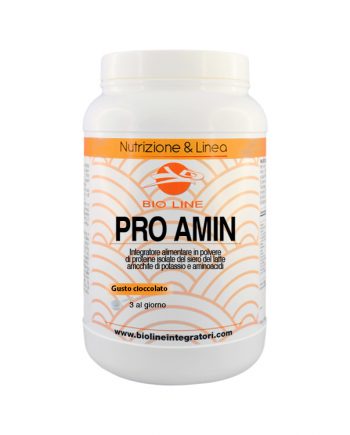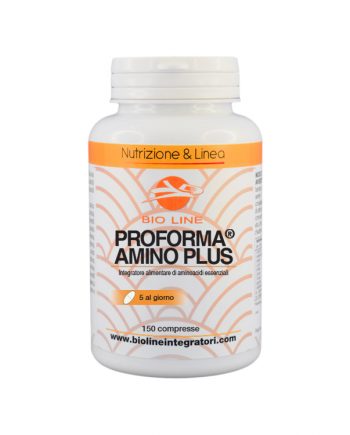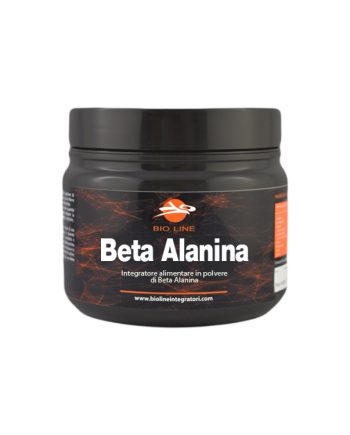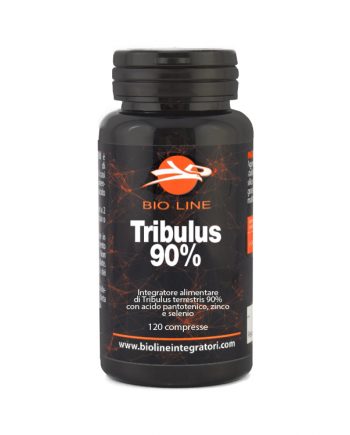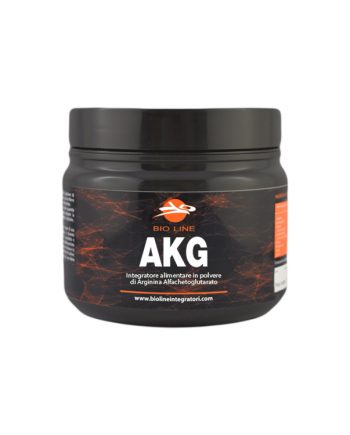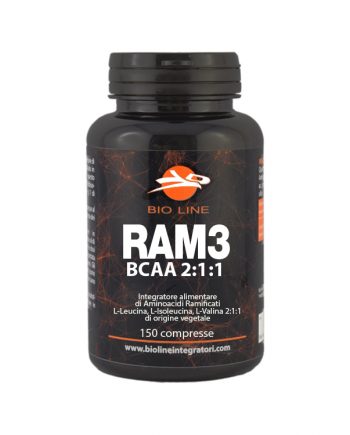Recovery Post Workout powder with sweeteners - Post workout supplement
Properties of components
– BCAAs (L-leucine, L-isoleucine and L-valine): are the three amino acids most present in the muscle structure. After taking, the BCAAs reach the muscle while maintaining their structure unaltered, ie without being metabolized in the liver.
The intake of branched chain amino acids is indicated for muscle recovery after intense physical activity.
– L-carnitine: it is the amino acid responsible for the transport of fatty acids inside the cell for their oxidation and subsequent production of energy.
– L-glycine: non-essential amino acid important for collagen formation.
– L-glutamine: semi-essential amino acid responsible for transporting toxic nitrogen residues, in the form of ammonia, for subsequent elimination.
– L-ornithine ketoglutarate: salt of the amino acid derivative ornithine obtained by combining with the molecule of alpha-ketoglutarate. Ornithine intervenes in the urea cycle to eliminate nitrogen.
Alfachetoglutarate is involved in the regulation of the Krebs cycle for energy production.
– L-taurine: non-essential amino acid, concentrated in skeletal and cardiac muscle.
– Dextrose and maltodextrin: dextrose is a rapidly assimilated monosaccharide, it is the main energy source of cells. Maltodextrins are carbohydrates with a medium assimilation rate obtained by hydrolysis of corn starch, they are made up of glucose polymers. The dextrose equivalence (DE) value of maltodextrins is 18.
Carbohydrates contribute to the recovery of muscle contraction after intense and / or prolonged exercise that leads to muscle fatigue and depletion of glycogen stores in skeletal muscles. The beneficial effect is obtained with the consumption of 4 g of carbohydrates per kg of body weight. It is recommended to start and end the intake within 4-6 hours following intense and / or prolonged physical exercise.
– Creatine: creatine increases physical performance in case of repetitive, high intensity and short duration activities. The beneficial effect is obtained with a daily intake of 3 g of creatine.
– HMB: is a metabolite of the essential amino acid L-leucine.
– Magnesium: contributes to muscle function, the reduction of tiredness and fatigue.
– Potassium: contributes to the functioning of the nervous and muscular systems and to the control of blood pressure.
– Vitamin B1: contributes to the functioning of the nervous system and heart function.
– Vitamin B2: contributes to normal energy metabolism, to the reduction of tiredness and fatigue.
– Vitamin B5 (pantothenic acid): contributes to energy metabolism, synthesis and metabolism of steroid hormones, vitamin D and some neurotransmitters.
– Vitamin B6: contributes to normal energy metabolism, to the reduction of tiredness and fatigue, to the functioning of the nervous system and the immune system.


